Accessible UCL beyond Disability History Month: talking to students and staff with disabilities
9 March 2023
UCL VPEE Student Journalist Suzanna Chen sat down with disabled students and staff to talk about support, stigma, and the changes being made for a more inclusive UCL.
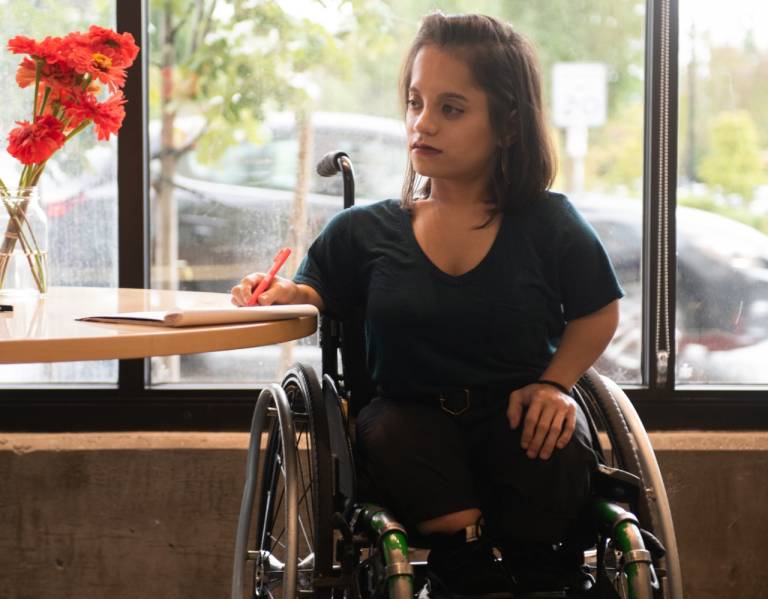
UK Disability History Month occurs annually. Between November and December 2022, it saw a series of events at UCL highlighting the lived experiences of people with disabilities at the university and beyond.
But this period should not be the only time when the disabled community at UCL is acknowledged for their strengths and struggles. In this article, we take a look at the lives of both students and staff with disabilities at UCL.
Accessibility is a fundamental principle for UCL, in terms of building and improving its working and learning environments. UCL accommodates its disabled students and staff with support like academic and work adjustments, physical access arrangements, digital accessibility tools, and awareness training.
Many people at UCL are actively working towards a better environment for disabled people, too.
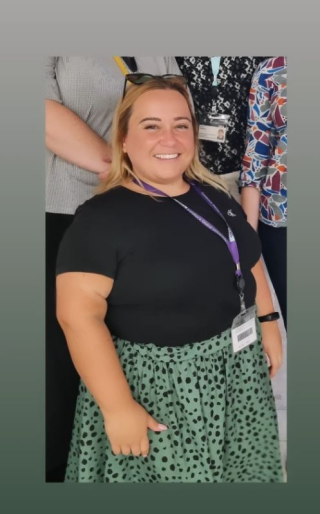
Her team’s work also includes supporting students’ mental health and wellbeing; and reflecting and considering additional improvements that UCL can make for its disabled community.
“Many people at UCL are actively working towards a better environment for disabled people, too.
Louise’s work allows her to “make changes that will benefit and further support our disabled students,” and she is incredibly proud of what her team has achieved. Here are some highlights:
Accepting Autism and AD(H)D referrals as evidence for reasonable adjustments
Putting in place temporary SoRAs for students struggling to obtain medical evidence from their GP, which the team support with as well
Leading a working group to strengthen reasonable adjustments and pushing for a “Towards Inclusivity” approach to SoRAs, which advocates for key baseline adjustments to be implemented within all teaching and learning environments. This approach has been developed by Louise and Ben Watson, the Head of Digital Accessibility. Find the Digital Accessibility Hub here.
Improving the Specific Learning Differences questionnaire to include the screening of AD(H)D
Influencing institutional changes like improvements within the academic manual. These include the inclusion of acute episodes and fluctuating conditions, paragraph 3.5.1 and other positive changes on the Student Support Framework
Organising two successful International Day of Persons’ with Disabilities events, which put the spotlight on some amazing disabilities research and work within UCL.
“I think UCL can be an accessible environment”
One essential part of the support network for disabled students is the adjustments they deserve to thrive academically and physically. These are often compiled by disability support staff into a document called the Summary of Reasonable Adjustments (SoRA), with input from the student, and they are then passed along to the students' lecturers and departments. They can also be amended and adjusted if a student's needs change due to fluctuations in their health.
Alex, a recent alumnus who studied MSc Earth Sciences, says UCL deserves "immense merit" for committing to providing successful adjustments to disabled students, but he urges the process to be easier.
Alex has dyspraxia, a condition affecting his body's coordination and movement. In his programme, which had "substantial field trip components," this impacted the way and time it takes for him to write observations in field books. He says his differences "severely impacted not just [his] enjoyment of the trips but academic performance as well – I was in distress multiple times throughout the trips,” he adds, “because I couldn't keep up with everyone else."
He tried to communicate his issues with his department. While he says solutions were provided that "worked to a certain extent," he had to work hard for this. "I needed to explain my difficulties several times, which was hard because of my communication and language processing issues. And even then, progress was slow. I understand that many students have had to repeatedly ask for the adjustments they need, which they shouldn't have to do considering our intense workloads. Staff need to be more pro-active in their efforts to support students, rather than waiting for students to talk to them about their concerns – a lack of response from the student does not necessarily mean all is well.”
“ Staff need to be more pro-active in their efforts to support students, rather than waiting for students to talk to them about their concerns
Philip, a second-year History student, agrees. He says that getting his accommodations set up and accessing support "has felt like an almost Sisyphean task at times."
He says: "Dealing with bureaucracy can be difficult for anyone, but it's especially difficult for people like me with severe executive dysfunction problems. You have to talk to a lot of different people to get adjustments put in place.
"I think UCL can be an accessible environment, but there's a lot of hoops to jump through to get the support you need."
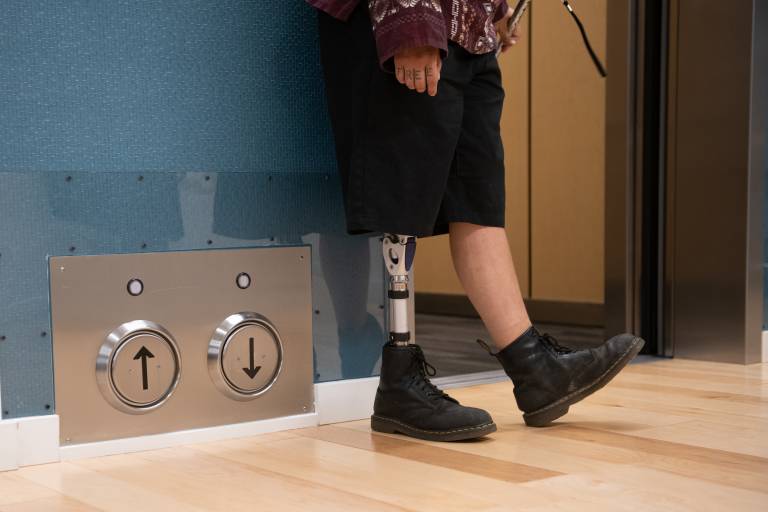
“This is something I take very seriously”
Louise’s team is working hard to make the process of getting SoRAs easier, through increasing the number of appointments, allocating additional funds for staff only focussed on SoRAs, and making it possible to create adjustments through askUCL only, without appointments.
For issues with getting SoRAs followed through, she points to student advisors and SoRA leads within each department as key players for students’ queries. SSW are regularly working with them in the SoRA working group to strengthen communication between disability support and academic staff.
Physical accessibility is something her team is trying to improve as well. She notes that “changes to a physical environment can take time” but confirms that “any access barrier is high on everyone’s agenda.” Her team’s efforts are made alongside staff in the Estates, Timetabling, and Accommodation teams to make sure all areas of UCL are as physically accessible as possible for disabled students.
Louise understands that some staff may not know how to support an individual student or implement their SoRA, and she urges these staff to talk to her team. She also “strongly encourages” students who have had experiences of being ignored or dismissed to talk to SSW, reach out to the Equality, Diversity and Inclusion Committee, or submit a UCL Report + Support form, if they’re comfortable with it.
“Recording such perceptions, beliefs and incidences helps us change behaviours. Societally, there remains a lack of understanding on disability, and I do believe we need a whole UCL community approach to understanding disability. This is something we should do even if we have everything right.”
“Disability gets seen as laziness a lot”
Even after getting a SoRA set up, some disabled students still have to work hard to get it implemented by individual staff.
A second-year Politics and International Relations student, who wants to remain anonymous, thinks this might be due to a lack of understanding of the varying impact of disabilities outside of the specialised support staff.
They point out that because of their invisible conditions, their attendance might be impacted by difficulties with processing information, maintaining full attention, and even getting out of bed sometimes. Adding onto these are their physical conditions, which make some UCL locations inaccessible.
They feel like any absence due to their conditions, especially less visible ones, “gets seen as laziness a lot” by their lecturers. They think this may contribute to them disregarding requests for lecture recordings and other adjustments outlined in their SoRA.
While they emphasise “there are a couple of staff members who’ve been really helpful and supportive,” they mention one lecturer who has made it clear that they need to show they’ve attended lectures in their exam answers.
“She makes it sound like something everyone is equally able to do,” the student says.
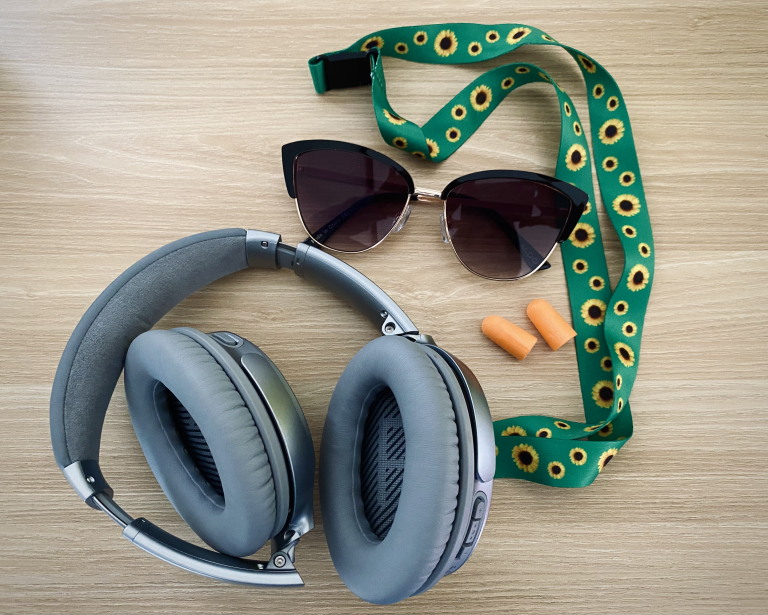
“I still think there’s a lot of stigma around disabilities”
Stigma around disabilities also presents a barrier for students when advocating for themselves, accessing support, and feeling included.
The Politics and International Relations student says: “I don’t feel comfortable telling a lot of people, because I’m nervous that they’ll brush it off, think of it as an inconvenience, or just think I’m being lazy and overdramatic. I still think there’s a lot of stigma in that regard, both in terms of physical and mental disabilities.”
Philip adds: “After I've been in a few lectures and seminars, I can usually tell whether or not a lecturer is the type of person who’d be accepting of it.
“I'm more apprehensive about sharing it with other students. Outside of the student groups I've been in, such as the Autism Society or the Disabled Student's Network, I wouldn't call UCL an especially supportive environment. In the past, I've heard quite a lot of students disparaging autism and autistic people. At the Welcome Fair this year, the first time I came out as autistic to people outside of my societies and outside of the staff members I've had to inform, I literally had people laugh at me. I would never tell someone unless I knew them well.”
The Student Support and Wellbeing Team are dedicated to changing this. The team, Louise says, is “diverse and highly skilled,” with representation being a crucial part. In fact, Louise is a disabled PhD student at UCL herself, something that gives her “a better and richer understanding of disabled student experiences” which helps with her work. She notes that many team members come from other minority backgrounds, such as in terms of culture.
She adds: “I hope that it means that our disabled students feel reassured and understood, and that I am able to relate and also pass on my understanding and knowledge to other members in SSW.
““It has always been important for me, as a disabled person, to serve and support my disabled community.”
“Our experiential context is important and powerful. Societally, the numbers of postgraduate disabled students are still low, so I hope that I am also able to inspire others to undertake a postgraduate or higher programme. I have also worked in Higher Education for a long time - since 2008, in fact.
“It has always been important for me, as a disabled person, to serve and support my disabled community.”
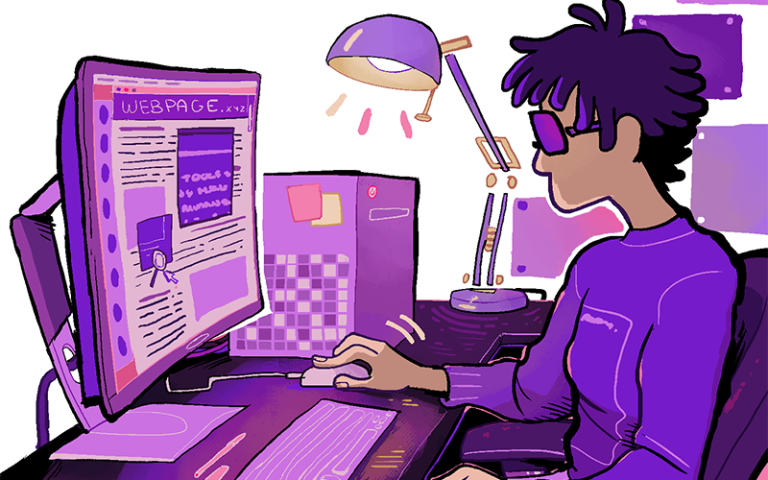
“Please do not feel alone”
In addition to thinking about how societal perceptions of disability are reflected within UCL, Louise comments on what the university’s high-pressure, academically rigorous environment means for its disabled students.
“There is often a misconception that being academically brilliant means you don’t need support. Another myth is that having a learning difference is linked to intelligence – it is not.
“As a disabled student myself, I recall being unsure as to whether I needed a SoRA or not. For a moment, I was concerned about how my research supervisors may perceive my SoRA request. Would they think I was somehow less capable? Would they be worried about how much time I may need from them? Now knowing my supervisors, I needn’t have been concerned.”
Fully understanding that stigmas can cause students to shy away from support, Louise notes that her team is actively promoting updated and progressive awareness, including the social model of disability, amongst staff. This model defines disability as a difference that only becomes an inconvenience due to inaccessible social and physical environments instead of as an inherent disease and medical condition. There is also a new EDI Mandatory Training course being rolled out for all UCL staff on 6 March, which includes training on supporting those with disabilities, as well as furthering understanding of the social model of disability.
For students who continue to feel this way, she encourages them to “come and speak to the SSW and see how you feel after.”
“Please do not feel alone. The statistics show that more and more people are applying for a SoRA. In the last academic year, we had an increase of 111%! I believe this is a great indicator of how overall UCL is a positive and inclusive environment.
“...when we are made aware of it, myself and my team will continue to challenge stigma, discrimination and ableism,” she says.
“Yes, there are some individual behaviours that need challenging. But I promise that when we are made aware of it, myself and my team will continue to challenge stigma, discrimination and ableism,” she says.
To find out more about available support and disabled student experiences, visit UCL’s website or a 2019 report compiled by Students’ Union UCL’s Disabled Students Network.
You can also learn more about disabilities and the lived experiences of disabled people in these upcoming awareness days and weeks:
Neurodiversity Celebration Week: March 13-19
World Down Syndrome Day: March 21
Purple Day for Epilepsy: March 26

About the author:
Suzanna is a second-year undergraduate student in the Arts and Sciences BASc programme. As a Chinese-Canadian student with disabilities, She is passionate about bringing her unique perspective and shining a light on lesser-acknowledged topics as a student journalist. As well as being part of the UCL VPEE Student Journalism Scheme, she is also Editor-in-Chief of the London Tab. You can read more about Suzanna in UCL News' 'Seven Questions with...Suzanna Chen'.
Photo attribution (when not belonging to UCL or Suzanna Chen): the wonderful Disabled and Here website; illustration attribution: Sherm for Disabled And Here.
 Close
Close

